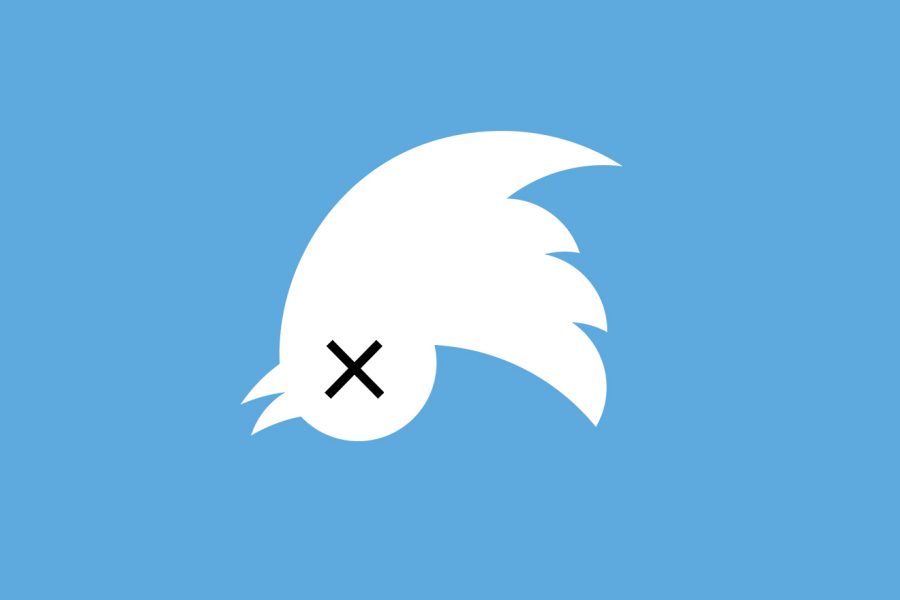Scott: Want to Reduce Online Hate Speech? Stop Spreading it From Your Own Account
September 11, 2019
I generally make it a point to not engage with hate groups online. While I believe it is vital to be aware of their movements and tactics, doing so does not necessitate adding to their follower count. Despite having no aversion toward discussions of hate speech and American ideological extremism, I try to avoid following its participants from my social media – if only in an attempt to obtain the occasional break from the rampant paranoia and fear-mongering within these circles.
But you wouldn’t know this from the contents of my Twitter feed, where there is little reprieve from this rhetoric to be found. Despite being selective over who I follow, my feed is regularly filled with fairly egregious examples of hate speech. My casual effort to avoid ethno-nationalist and fundamentalist screed is regularly circumvented – not by its authors, but rather by the many self-proclaimed liberal and progressive accounts who constantly quote-tweet them.
The temptation to clap-back
The introduction of Twitter’s quote-tweet feature (which allows users to repost a tweet with their own response attached above) has resulted in endless layman punditry. Quote-tweeting is the perfect tool for rebuttal, feeding the already near-irresistible temptation to fire a scathing retort toward the bad take of the day. Many liberal and progressive accounts believe themselves to be members of a crusade against online racism, sexism and homophobia, the quote tweet their sword against the uneducated and unjust. They righteously weaponize their wit as their followers provide reinforcement, together dunking undesirable ideas into the trash where they belong.
Yet, online interactions are rarely so simple. Serial quote-tweeters are often too busy basking in the mirage of internet clout to notice what their tweets have really done. Their outrage, while justified, is rarely persuasive. Dog-piling often only launches the speech they despise further into the Twitter-sphere. Their engagement nourishes the persecution complex of online bigots while simultaneously transporting their ideology to places it otherwise would not have reached, such as the feeds of unsuspecting users who are actively trying to avoid it.
When to quote tweet
There is no guarantee that censure via quote tweet generates meaningful discussion or accountability. But it is often guaranteed that whatever idea being quote tweeted will gain greater visibility due to an algorithm that values interactions above everything else. Twitter users should be selective, evaluating the person, audience and platform before deciding to amplify a harmful message.
Enforcing the consequences of hateful rhetoric is far more effective when its purveyors are identifiable. See a city employee or member of the school board or others in a significant position of power spiraling into a racist tirade? Share it extensively and pressure their employers and constituents to take action. But perhaps leave all the nameless, faceless trolls with less than a hundred followers to shout into the void alone.
It is also important to be mindful of one’s audience. Algorithms severely limit one’s ability to reach those with different political views, let alone the uniquely “persuadable” among them. Not only is there a likelihood that you are spreading hate speech to those who are already against it, you may also be exposing them to distressing content they wish to avoid. For example, transphobic bullying should be rejected and reported, but allies should avoid performative displays that force their trans followers to read reposted threats and accusations. I once had a friend tell me that they “only see transphobia when liberal people quote tweet it, and it’s like getting slapped in the face.”
The internet allows everyone their own platform without providing any guidance on how to use it. Navigating the responsibility of a platform is difficult – are you a bystander if you decline to call out a vicious anonymous account? Do other users ever truly change their minds after witnessing a fight between two strangers on the internet? Is reporting hate speech to site administrators sufficient or is a public shaming in order? While users are free to answer these questions on a case-by-case basis, they should avoid positioning their own platforms as a springboard for hate.
De-platforming without censorship
Making the personal decision not to quote tweet hate speech with is a win-win. A private user opting out of promoting disagreeable content on their platform can stop online cruelty from gaining traction and doesn’t waste their time with fruitless attempts to suppress speech. There is little risk of the Streisand Effect, in which other curious users scramble to find the banned content – everything is still there, assuming it does not violate Twitter’s already existing terms. Just as there is no real virtue in a public fight with an anonymous Twitter troll, there is also no formal censorship caused by refusing to engage with their content.
This informal strategy is similar to de-platforming, but with less bureaucratic limitations. Tech companies have shown little effort or ability to properly screen and ban users whose tweets contain hateful content. Counting on Twitter to crack down on hate speech is a recipe for disappointment. But there is a way to slow its transmission — it only requires that indignant users stop voluntarily spreading hate speech through their own accounts.
Let the trolls starve
“Don’t feed the trolls” is a timeless internet adage, and those who quote-tweet them in the name of activism are only playing themselves. Their efforts to search out and rebut hateful tweets only further increase the monetization value of hateful content. They twist in the trap, providing dangerous online communities with the attention they need to survive and lessening any financial incentive Twitter might have to ban them.
There is something hypocritical about demanding that Twitter remove users for hate speech while quote tweeting the same hate speech to cultivate a woke personal brand in the meantime. Effectively addressing such a damaging societal ill requires a focus on what is effective, not what feels satisfying. Educate yourself, advocate for tolerance, support victims and report hate speech, but don’t take the bait. Hate groups require conflict and interaction to convert and galvanize their members. Cutting off their lifeline is worth sacrificing such a performative method of opposition.








